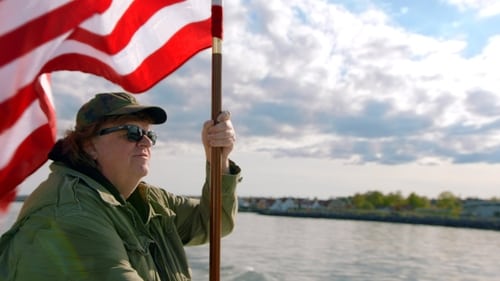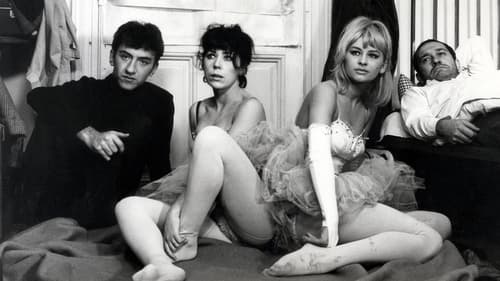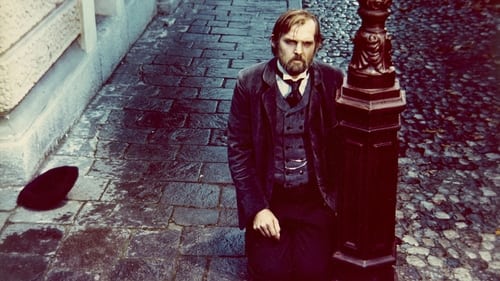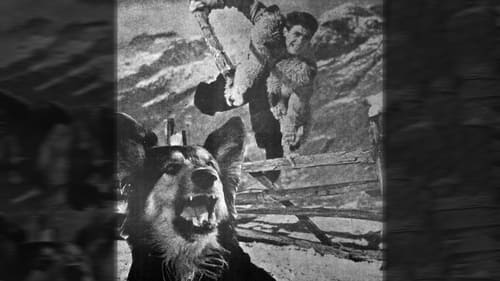The Flight of Dead Bird (1973)
Жанр : драма
Время выполнения : 1Ч 28М
Директор : Živojin Pavlović
Краткое содержание
A film about three brothers who try to survive in a difficult, hostile and melancholic Slovenian countryside.

Знаменитый документалист Майкл Мур, вооружившись камерой и флагом, хочет «завоевать» самые прогрессивные идеи Европы, чтобы внедрить их в США. К своему удивлению он обнаруживает, что все эти новаторства Старого Света — забытые обрывки американской мечты…

Тасмания, 1954 год: мигрантка из Словении Мелита бросает своего мужа и маленькую дочь Соню. Обезумевший отец Сони продолжает свою новую жизнь в новой стране, но вскоре он впадает в алкогольное отчаяние, и Соня сама оставляет его при первой же возможности. Теперь, почти 20 лет спустя, одинокая и беременная Соня возвращается в высокогорье Тасмании и к своему отцу, пытаясь собрать воедино кусочки своей жизни.

Через горы и долины со звонкой песней добрый и веселый мальчик Кекец направляется на хутор к Скаларам пасти стадо. Вместе с Кекецом на горное пастбище отправляются сын хозяина, трусишка Рожле, и слепая девочка Мойца. Рожле боится всего на свете, а больше всего тетку Пехту, которая живет в горах. Однажды Пехта похищает Мойцу. Кекец отправляется на её поиски и освобождает девочку. От Мойцы он узнает, что у Пехты есть лекарство, которое излечивает слепоту. Смелый и упорный Кекец преодолевает все препятствия, добывает лекарство, и счастливая Мойца снова видит.

Laibach is a Slovenian avant-garde music group associated with industrial, martial, and neo-classical musical styles. They formed on June 1, 1980 in Trbovlje, Slovenia (then Yugoslavia). Laibach represents the music wing of the Neue Slowenische Kunst (NSK) art collective, of which it was a founding member in 1984. The name "Laibach" is the German name for Slovenia's capital city, Ljubljana.

2009, Slovenia. For 30 years, Alija, the miner, has been one of the many Bosnian immigrant workers. Due to the crisis, miners are losing jobs. Alija is sent to check an abandoned mine. His task is to quickly make sure the mine is empty before management sells the company. But in the mine, Alija finds hidden proof of executions after WWII. He is told to stop digging and report the mine empty. He decides to continue, although he is risking his job. Alija discovers thousands of executed people. He informs the police. He found women among the dead. Some of them were civilians, missing persons, just like his sister that was lost in the 1995 genocide in Bosnia. Alija is convinced the victims need to be brought out, identified and buried. But there is no interest in doing that. The mine is proclaimed a WWII military grave and walled in. The dead will stay unburied. Alija loses his job and struggles to preserve his dignity.

After being fired, a young car mechanic Đuro gets recommendation to look for another job in a remote village. His new boss is warm, old fashioned and naive - completely opposite from the world he's coming from. The peaceful atmosphere is shaken when Đuro falls for a regular customer's wife.

Charlie, the protagonist of the Slovenian film “Porno Film”, is so dedicated to his porn viewing that his two friends John and Frank jokes that he must have a PhD in pornography by now. Using Charlie’s extensive knowledge of all things porn, the trio sets out to make the “first real Slovenia porn film”, in Slovenian language and everything — except the women in the film are emigrated Russian hookers, and their Slovenian isn’t very good.

A story about a couple from the bottom of the social ladder, about smuggling refugees across borders and other 'suspect' things- it is, first and foremost, an attempt to tell a story about the worst in people, wherever they may be coming from.

A flat broke aging boxer, living on the verge of existence, teams up with the equally desperate people in the city's suburbia to steal, cheat, and even kill for the money.

In Ljubljana lives a bus driver Stebe. He's a widower. He lives with five sons and a maid Rozi. The boys are very naughty and keep annoying Rozi and, in fact all neighbourhood. One day Rozi in desperation declares that she is leaving them, because she cant stand it no more. And she does leave, although she is fond of the boys. Soon afterwards Rozi's niece Meri comes by, asking if she might stay because she wants to find herself a job in town. Meri is good girl but cannot cope with the kitchen work as successfully as her aunt. But the whole Steb family seems to be charmed by her. Even one of Stebe's own colleagues, Tone, begins to take interest in the girl. Meri likes him too. Stebe's boys feel quite disappointed because of it. But all's well that ends well: in full conspiracy Meri qualifies as bus driver while Rozi returns to the Stebe family.

1905 short film showing people walking down a Ljutomer street after mass.

A film about short-lived Slovenian war of independence.

A story set in a Slovenian village during Italian occupation. Stefuc, a man who has been widowed twice and has four daughters, wants to get married for the third time with Zana, who's already engaged and pregnant with Ludvik. Stefuc tries to separate them away, but realizes that he'll have to marry Hedvika, a nice looking girl who has just returned from Milan. In the meantime, Italian fascist authorities decide to eradicate five Slovenian songs with the help of local traitors.

A TV journalist making a documentary in a factory finds out that the workers have been on strike and tries to analyze the strike in his film, but is thwarted by the TV company. His failure at his job is interwoven with his failed marriage.

Действие фильма происходит в словенском прибрежном городке во время Второй мировой войны. Фильм рассказывает историю о крестьянах, которые помогают партизанам избавиться от итальянских, а затем и немецких властей, правивших городом в последние годы оккупации.

Two girls who study theatre & drama and their friend photographer decide to rob a bank, using all sorts of their creative force and imagination to implement the idea.

The movie based upon the classical Slovene novel Martin Kačur, depicts the clash between the teacher Martin Kačur and his conservative environment. Due to his progressive ideas, he is transferred to a small town. The village environment is even more depressing than his former surroundings were, as the influence of both the secular and the Church authorities is even greater in the country. Even though Martin meets Tončka and the two of them get married, he gradually becomes a disillusioned and embittered man. In time, when society's strictures become somewhat milder, Martin is transferred to a more friendly environment, but all the injustices he has experienced have already bitten too deep. Unlike his wife, Martin finds it very difficult to accept changes. When his son dies, it seems as though he has lost all his elan and the will to live. Will he be able to go on bringing the light of knowledge to the ignorant masses, or will his ideals be buried forever like a man in a snowdrift?

The film is based on a novel by Ivan Tavcar and was adapted for the screen by Andrej Hieng. It is set at the end of the 17th century in the area that is now Slovenia at a time of religious intolerance with Amandus, a Catholic priest, determined to persecute local Protestants.

The only true friend he had was an wolf. Or was it a dog?

At the end of the last century hunters who hunted wild roosters, while waiting for prey to show up, were killing time with storytelling. The first story is about Jernac that had a fight with Tomas because of Rezika. Another story tells about Tincek, limp foundling, who spent his youth with the Komar family, where he fell in love with their Lencka. The third is the story of a rich Miholac whose attention was grabbed by poor Polonca, a romance that was opposed by his father. The central theme of all stories is love that eventually everybody die of.














